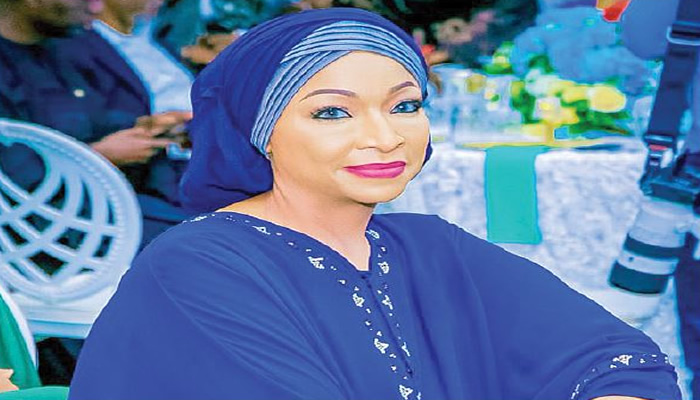The Ojude Oba festival, a vibrant tapestry of Yoruba culture and tradition, recently unfolded in Ijebu Ode, Ogun State, drawing thousands of spectators and participants alike. This annual spectacle, held on the third day following Eid-al-Adha, serves as a grand display of respect and homage to the revered Awujale of Ijebuland, Oba Sikiru Kayode Adetona. The festival’s origins trace back to the 19th century, coinciding with the burgeoning spread of Islam among the Ijebu people. Adding further luster to this year’s celebration was the presence of Hannatu Musawa, the Minister of Art, Culture, Tourism, and Creative Economy, who graced the occasion in resplendent traditional attire, her presence captured in videos circulating on social media platforms. Her participation underscores the significance of the festival not only as a local tradition but also as a showcase of Nigeria’s rich cultural heritage on a national stage.
The festival’s allure lies in its kaleidoscopic display of cultural elements. Elegantly dressed attendees, adorned in elaborate traditional garments such as Agbada, Iro, and Buba, crafted from luxurious fabrics like Aso Oke, Sanyan, and Adire, create a breathtaking visual spectacle. The rich textures and vibrant colours of these outfits speak volumes about the craftsmanship and artistry deeply embedded in Yoruba culture. The festival grounds pulsate with energy as skilled horsemen showcase their equestrian prowess, accompanied by the rhythmic cadence of traditional music and the mesmerizing movements of cultural dancers. The air is punctuated by intermittent gun salutes, adding a touch of grandeur to the festivities and symbolizing the community’s deep-seated pride in its heritage. This convergence of sights and sounds creates an immersive experience that transports attendees back in time, allowing them to connect with the historical and cultural roots of the Ijebu people.
The participation of the Minister of Art, Culture, Tourism, and Creative Economy holds particular significance. Hannatu Musawa, captured in a video shared on social media, embodied the spirit of the festival with her elegant attire and dignified presence. Her attendance signifies the government’s recognition of the importance of preserving and promoting Nigeria’s cultural heritage. Such high-profile participation serves to elevate the festival’s status, placing it firmly within the national consciousness and highlighting its potential to attract tourists and boost the local economy. Moreover, it sends a powerful message about the value of cultural events in fostering unity and national pride.
The Ojude Oba festival is more than just a colourful spectacle; it’s a vibrant expression of identity, a celebration of community, and a testament to the enduring power of tradition. It serves as a vital link between generations, passing down cultural values and practices from elders to the youth. The festival underscores the importance of remembering one’s roots while embracing the future. In a rapidly changing world, such cultural anchors provide a sense of belonging and continuity, reinforcing the unique identity of the Ijebu people.
The festival’s impact extends beyond its immediate cultural significance. It serves as a platform for showcasing the artistic talents of local artisans, musicians, and performers. The exposure gained through such a prominent event can contribute to their economic empowerment and encourage the continuation of traditional crafts. Furthermore, the festival attracts visitors from far and wide, boosting tourism in the region and contributing to the local economy. This influx of visitors creates opportunities for businesses, generating revenue and promoting economic growth within the community.
In conclusion, the Ojude Oba festival, with its kaleidoscope of colours, sounds, and traditions, stands as a testament to the rich cultural tapestry of the Ijebu people. The participation of prominent figures like the Minister of Art, Culture, Tourism, and Creative Economy further enhances its visibility and underscores its importance in preserving and promoting Nigeria’s cultural heritage. The festival is not merely a celebration of the past; it is a living, breathing expression of identity, a vehicle for economic empowerment, and a vibrant symbol of community pride that resonates far beyond the borders of Ijebu Ode. It serves as a powerful reminder of the importance of cherishing and preserving cultural traditions for generations to come.


